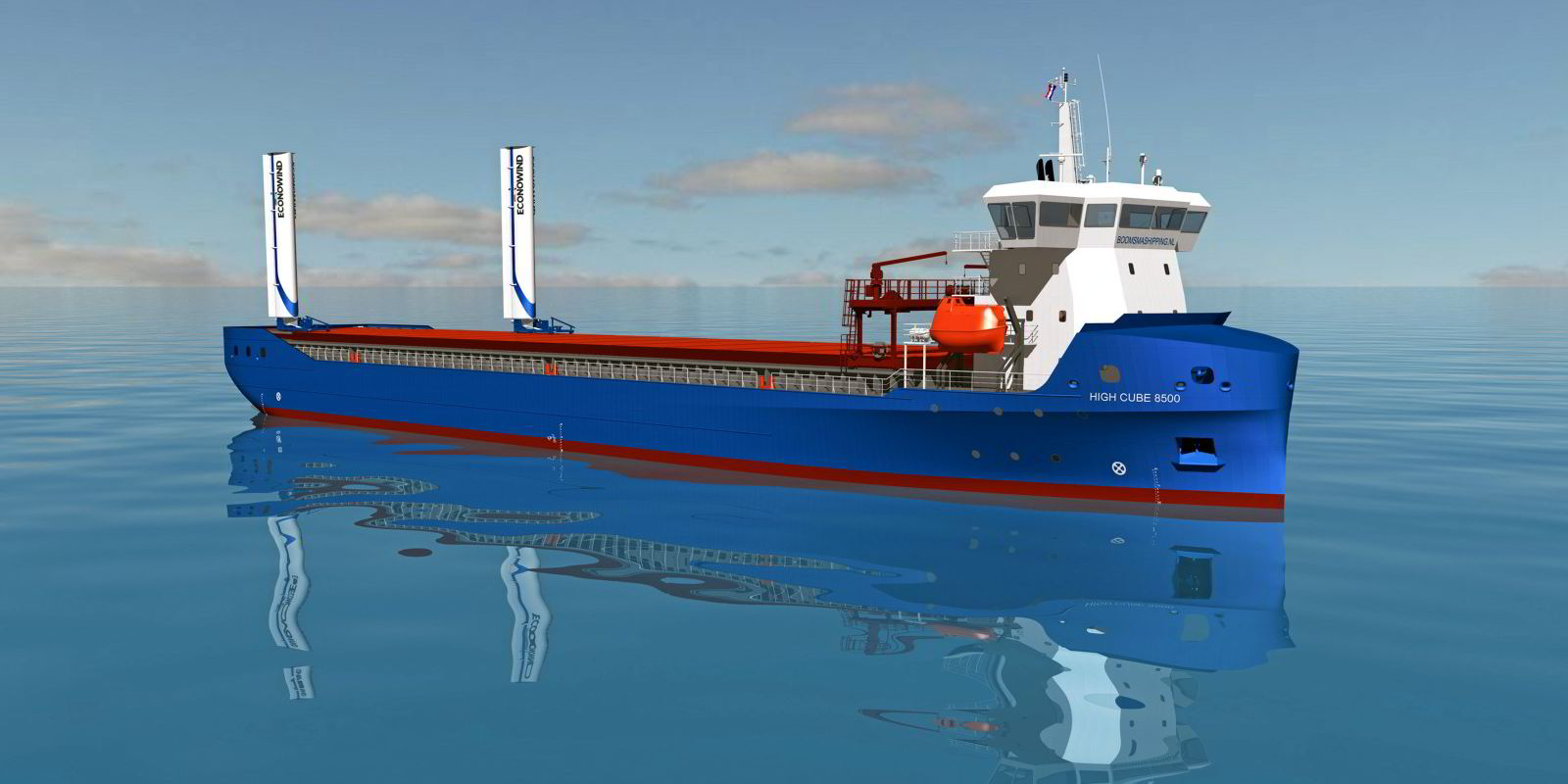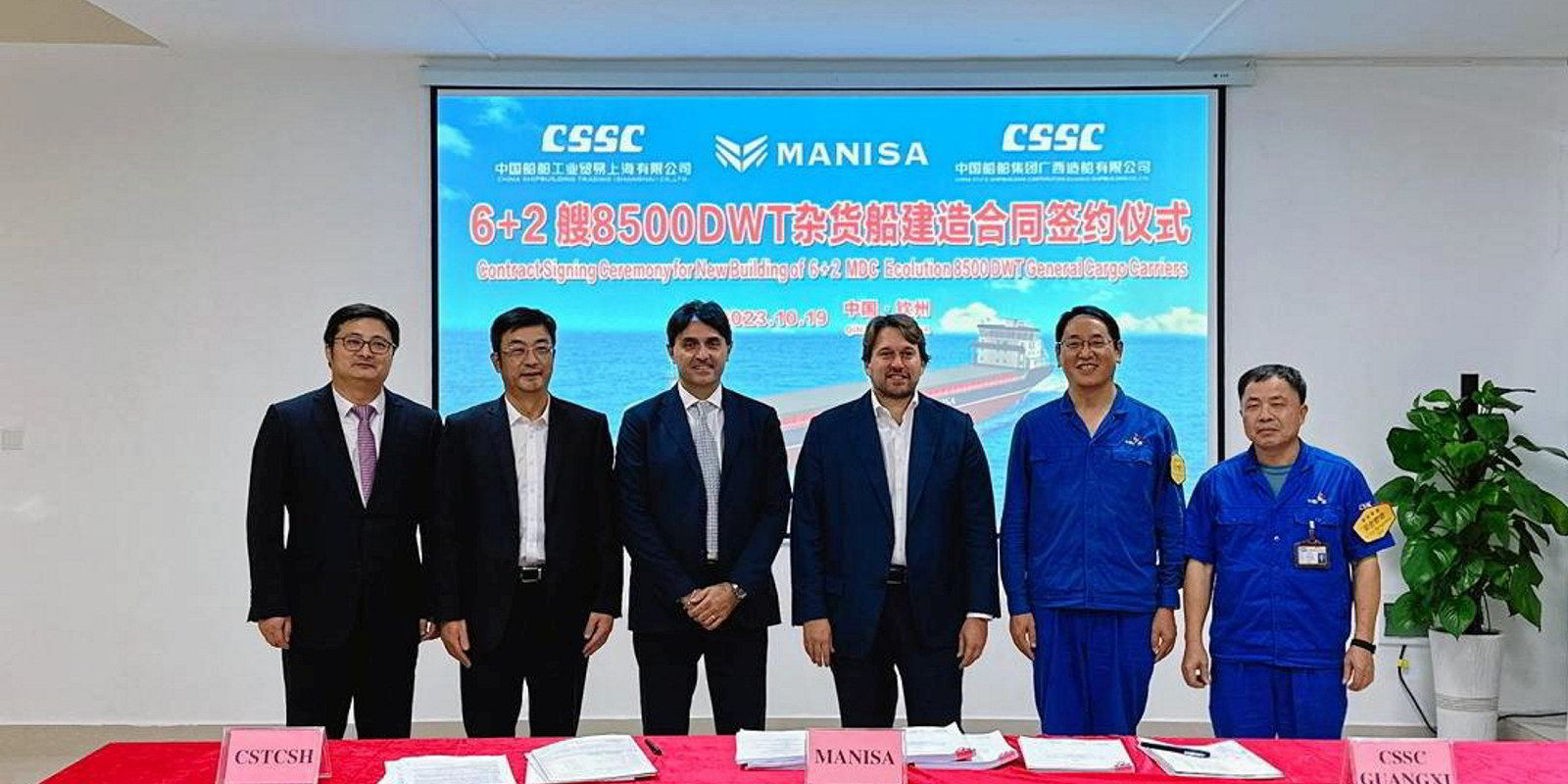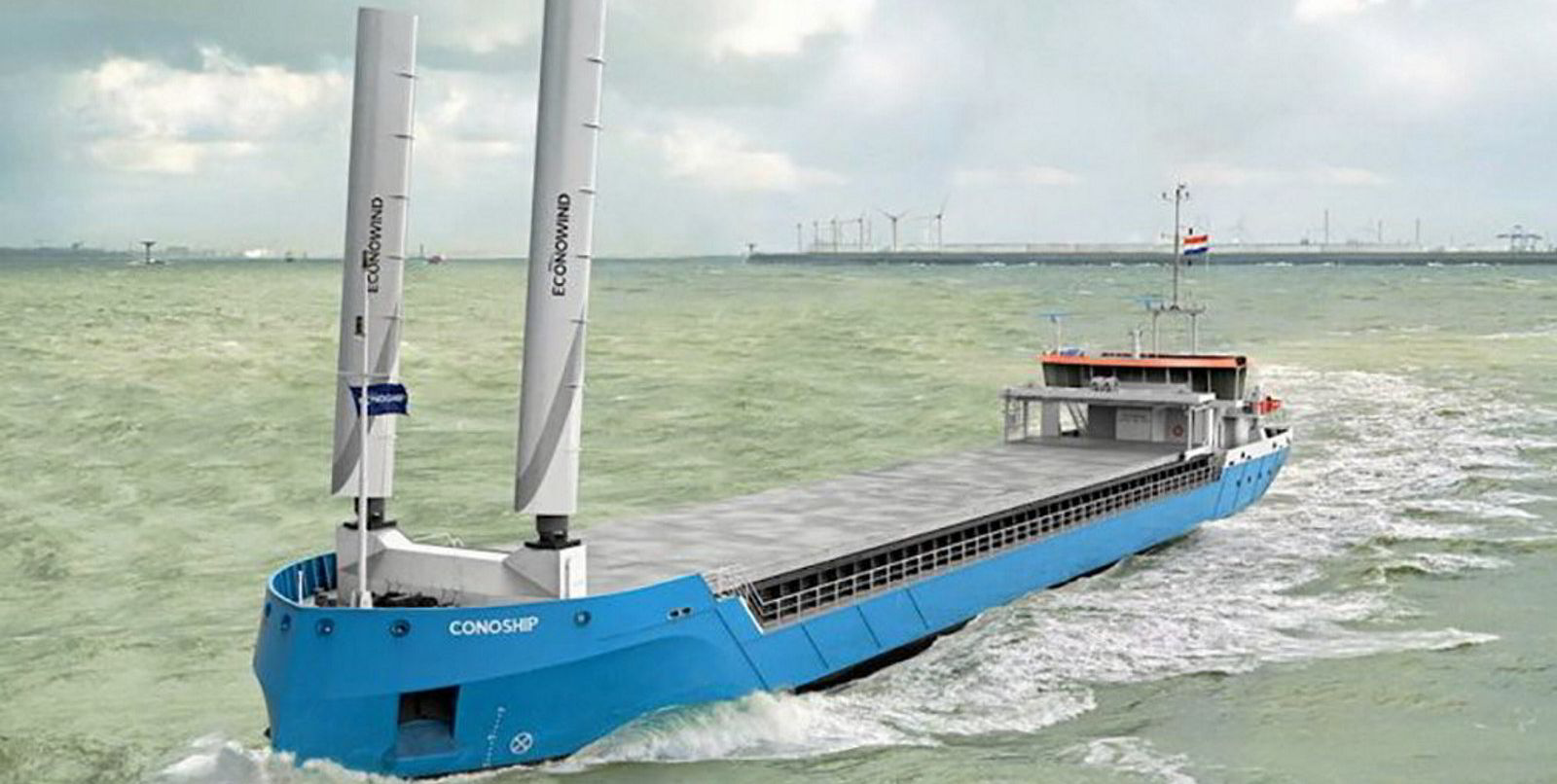Two companies from Germany and the Netherlands have jointly ordered up to eight general cargo ship newbuildings at Chowgule Group’s new Mangalore yard in India.
Leonhardt & Blumberg and Boomsma Shipping inked two firm and two optional vessels each, due for delivery from autumn 2025 onwards.
The low-emission 8,500-dwt vessels were jointly developed with Dutch ship design group Conoship International.
The move is characteristic for European owners’ urge to order vessels in that class, in view of tighter environmental regulations and a dearth of modern ships available in the secondhand market.
Late last month, TradeWinds reported about Italy’s Manisa group ordering six firm and two optional ships of the same size at China State Shipbuilding Corp’s Gungxi yard.
“Climate change can no longer be ignored and change of course is absolutely necessary,” Boomsma Shipping executive Johan Boomsma said in a press release on Thursday, pointing to green shipping regulations that are gradually coming into force.
“For the short term, our focus is on fuel consumption reduction — as a consequence, emissions are lowered,” Boomsma said.
It was Boomsma and Conoship who kickstarted the project, with Leonhardt & Blumberg joining in at an early stage of the development.
JR Shipbrokers & Consultants acted as newbuilding broker and matchmaker between the two firms, as well as with Chowgule — a specialist builder of shortsea dry cargo vessels.
New shipbuilding capacity in India
The Indian shipbuilder will task its newly upgraded Mangaluru shipyard with their construction, which is scheduled to start production in spring 2024.
With its two shipyards in Goa building vessels of up to 7,000 dwt fully booked until 2027, Chowgule added capacity earlier this year by buying the Mangaluru (Mangalore) yard.
Company executive Arjun Chowgule said in the statement that Chowgule is now “investing heavily to modernise the facility and to prepare it for efficient production of vessels from 7,000 tons to 25,000 tons”.
The order marks a point of departure for Leonhardt & Blumberg as well, with the newbuildings set to become its first general cargo ships.
The traditional Hamburg-based company had been known as a manager of small container ships, of which it currently manages about 30.
However, at some point in 2021, the company decided to diversify into product tankers and shortsea dry cargo vessels “while maintaining a strong position” in its core market of container feeder vessels.
Leonhardt & Blumberg first expanded with secondhand product tankers, of which it currently manages six MR2s.
“It was clear that the best approach for the shortsea dry cargo vessel market would be to do a newbuilding programme, hence this took a while longer,” senior company executive Torben Koelln said.
The decision to enter that particular segment was mainly due to the leading role of smaller vessels with regards decarbonisation.
“The shortsea shipping space is where most of the innovation takes place in order to make vessels more energy efficient and to achieve much less emissions,” Koelln said.
According to the statement, the newbuildings’ optimised diesel-electric engines will need up to 60% less propulsion energy compared to existing tonnage.
Furthermore, the single-hold, open-top complete tween deck vessels will be ready for more groundbreaking technologies, such as wind-assisted propulsion, carbon capture and emission-free operation on batteries.
Conoship is already known to be involved in newbuilding orders for wind-assisted general cargo ships.
Apart from jointly developing and ordering the ships, Leonhardt & Blumberg and Boomsma will also cooperate in their employment.
“For us, it is a great advantage that we have been able to team up with Boomsma Shipping in the Netherlands as they have a lot of expertise and offer us the access to their cargo clients through their commercial management arm, ‘NewTide Chartering’,” Koelln said.





